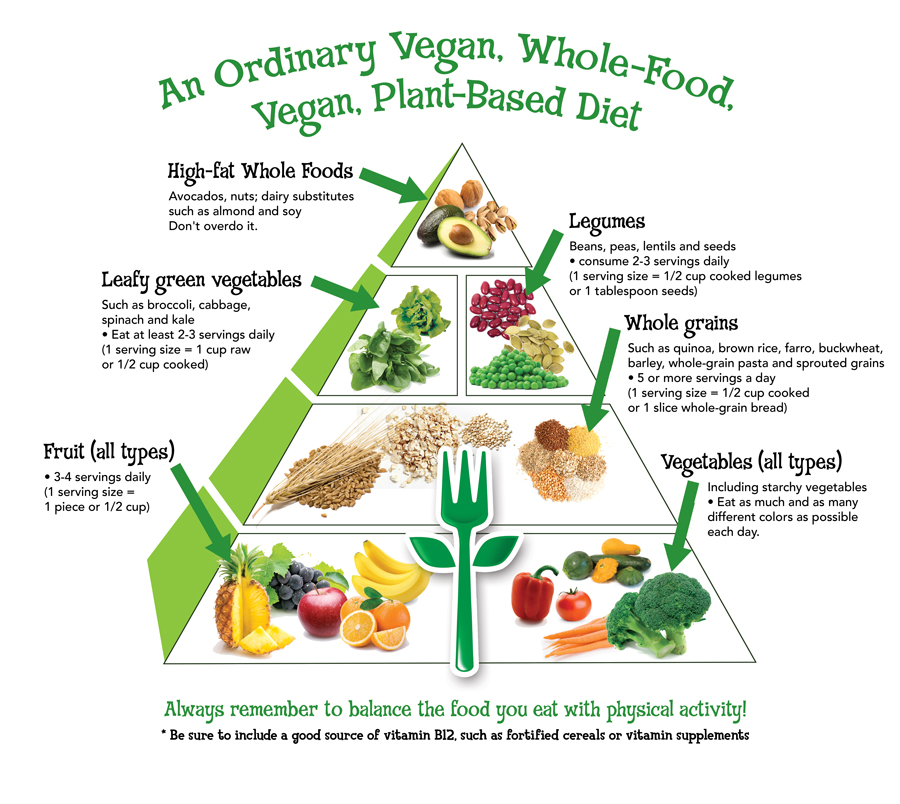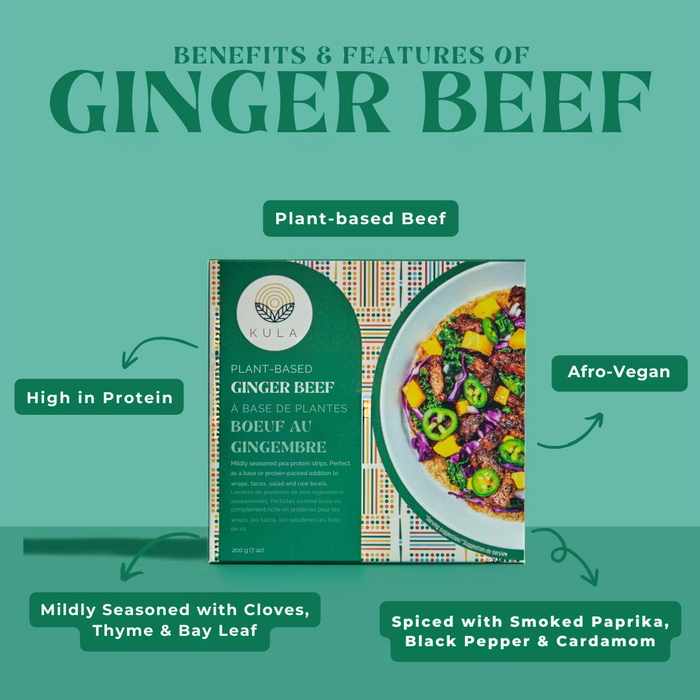Exploring the Rise of Plant Based Chicken in Miami Restaurants
Exploring the Rise of Plant Based Chicken in Miami Restaurants
Blog Article
All Regarding Healthy And Balanced Food: Benefits of Checking Out Plant Based Alternatives
The discussion bordering plant-based diets has obtained significant focus in the last few years. Many people are exploring the possible health benefits, nutritional benefits, and environmental effects connected with these nutritional selections. As individuals come to be much more familiar with their food's impact on well-being and sustainability, questions develop concerning the practicalities of adopting such a lifestyle. What particular modifications can one expect, and just how might these selections reshape not just individual health and wellness yet additionally the planet's future?
Comprehending Plant-Based Diet Regimens
Although lots of people connect plant-based diets primarily with vegetarianism or veganism, these diets can include a vast array of consuming patterns that prioritize entire, minimally processed plant foods. Such diet regimens often include fruits, veggies, entire grains, nuts, vegetables, and seeds, while restricting or removing pet items. This flexibility allows people to customize their dietary selections according to individual choices and dietary requirements. Some might adopt a mostly plant-based diet regimen while still occasionally consuming meat or dairy, typically described as a flexitarian technique. The focus remains on including even more plant foods, which can lead to a diverse selection of tastes and meals. Understanding these various interpretations of plant-based eating is important for valuing its accessibility and allure in contemporary food society.
Wellness Benefits of Plant-Based Foods
The health benefits of plant-based foods are considerable, using a nutrient thickness benefit that sustains total health. Research indicates that these foods can enhance heart health and wellness and play an essential function in efficient weight monitoring. By including more plant-based options, individuals may improve their nutritional selections and advertise lasting wellness.
Nutrient Density Advantage
Nutrient density plays a vital duty in the health advantages of plant-based foods, making them an engaging selection for those seeking a balanced diet. Plant-based foods, such as fruits, veggies, beans, nuts, and entire grains, are typically rich in essential vitamins, minerals, and anti-oxidants while being lower in calories. This high nutrient thickness enables people to consume fewer calories while still satisfying their nutritional needs. Additionally, these foods are loaded with nutritional fiber, advertising digestion health and wellness and helping in weight management. By incorporating nutrient-dense plant-based alternatives, customers can improve their overall health, sustain their body immune systems, and minimize the risk of chronic conditions. Inevitably, the nutrient thickness of plant-based foods underscores their importance in a health-conscious way of living.
Heart Wellness Enhancement

Weight Management Assistance
Along with advertising heart wellness, a plant-based diet plan can considerably aid in weight monitoring. This nutritional strategy stresses whole foods such as fruits, vegetables, vegetables, nuts, and whole grains, which are typically reduced in calories and higher in fiber compared to animal-based products. The high fiber content helps enhance satiation, lowering general calorie consumption. Moreover, plant-based diets are usually abundant in essential nutrients while reduced in unhealthy fats, making it less complicated to preserve a healthy and balanced weight. BBQ Sauces. Research indicates that individuals that take on a plant-based way of living often tend to have reduced body mass indexes (BMIs) and experience even more effective weight reduction compared to those that eat meat-heavy diet regimens. Subsequently, welcoming plant-based choices is a calculated choice for reliable weight management
Nutritional Value of Plant-Based Ingredients
Plant-based ingredients are rich in crucial nutrients, providing a varied variety of vitamins, minerals, and anti-oxidants that add to overall health and wellness. A contrast of healthy protein resources exposes that while animal products are typically watched as exceptional, several plant-based options supply ample healthy protein and other helpful compounds. Understanding the nutritional worth of these ingredients can help people make informed nutritional selections.
Important Nutrients in Plants
Nutrient-rich ingredients located in plants provide a varied range of important nutrients that contribute significantly to overall wellness. These active ingredients are abundant in vitamins A, C, and K, which sustain immune feature, vision, and blood clotting, respectively. Furthermore, plants give important minerals such as calcium, potassium, and magnesium, important for heart wellness, muscular tissue feature, and bone toughness. The visibility of fiber in plant-based foods aids digestion and advertises a healthy and balanced digestive tract microbiome. Anti-oxidants, located generously in vegetables and fruits, assistance combat oxidative tension and reduce swelling. In addition, many plant foods are low in calories yet high in nutrients, making them an outstanding selection for those seeking to keep a healthy weight while ensuring excellent nutrient intake.
Comparing Protein Resources
Protein resources differ significantly in their dietary profiles, with plant-based components using unique advantages. Unlike animal proteins, which frequently have hydrogenated fats and cholesterol, plant healthy proteins tend to be lower in Sugar Free Sauces these undesirable elements. Legumes, nuts, seeds, and whole grains are rich in crucial amino acids, fiber, vitamins, and minerals. As an example, lentils offer high protein material along with significant iron and folate, while quinoa is a total healthy protein, offering all 9 essential amino acids. In addition, plant-based proteins are typically gone along with by anti-oxidants and phytochemicals that sustain total wellness. The change to plant-based healthy protein sources not just boosts nutritional intake yet also aligns with lasting dietary methods, reducing environmental effect and advertising long-lasting health benefits.
Ecological Impact of Plant-Based Consuming
As awareness of climate adjustment grows, several individuals are checking out lasting dietary selections that can considerably reduce their ecological footprint. Plant-based consuming has arised as a substantial contributor to lowering greenhouse gas emissions, which are largely connected with livestock manufacturing. The growing of fruits, legumes, grains, and veggies usually requires fewer sources, such as water and land, contrasted to pet farming. Furthermore, plant-based diet regimens can lead to reduced logging, as much less land is required for grazing animals or expanding animal feed. By shifting towards plant-based alternatives, consumers can support biodiversity and promote much healthier communities. Generally, welcoming plant-based consuming not only advantages individual health and wellness but likewise represents an essential action towards environmental sustainability and conservation initiatives.
Overcoming Common Misconceptions
While several individuals acknowledge the advantages of a plant-based diet plan, a number of misunderstandings frequently discourage them from completely accepting this way of life. A common belief is that plant-based diets lack sufficient healthy protein; nonetheless, various plant resources, such as vegetables, nuts, and tofu, offer sufficient protein. Additionally, some assume that this diet is pricey, when in reality, staples like beans, rice, and seasonal veggies can be fairly economical. One more false impression is that plant-based consuming is excessively restrictive, whereas it in fact uses a varied range of foods and flavors. Ultimately, lots of fret that a plant-based diet plan may result in deficiencies, yet with proper planning, individuals can acquire all needed nutrients, consisting of minerals and vitamins, while appreciating a variety of scrumptious dishes.
Tips for Transitioning to a Plant-Based Lifestyle
Making the shift to a plant-based lifestyle can be an enriching experience, though it commonly needs some support to navigate the first adjustments. First, people are motivated to start progressively, integrating even more fruits, vegetables, legumes, and entire grains into their meals while lowering meat and milk usage. Dish preparation is necessary; preparing an once a week menu can help alleviate the adjustment and prevent last-minute undesirable selections. Exploring new dishes and cooking approaches can also preserve and enhance the experience enjoyment concerning plant-based consuming. In addition, joining support groups or neighborhoods can provide motivation and share important ideas. Ultimately, remaining educated concerning nutrition guarantees well balanced dishes, avoiding shortages while fostering a healthy and balanced, rewarding plant-based way of life.
Delicious Plant-Based Dish Ideas
Exploring delicious plant-based dish concepts can influence people to welcome a more nutritious diet. One popular choice is a passionate quinoa salad, featuring cherry tomatoes, cucumber, and a spicy lemon-tahini dressing. One more fave is a tasty lentil stew, loaded with carrots, celery, and great smelling herbs, ideal for a calming dinner. For breakfast, overnight oats made with almond milk, chia seeds, and covered with fresh berries give a nutritious begin to the day. Furthermore, a vivid vegetable stir-fry with tofu and a variety of vibrant veggies can be a fast yet satisfying meal. Ultimately, creamy avocado toast on whole-grain bread, sprinkled with seeds and seasonings, provides a simple yet tasty snack. These dishes display the variety and splendor of plant-based consuming.

Regularly Asked Questions
Can a Plant-Based Diet Supply Enough Protein?
The question of whether a plant-based diet plan can offer adequate healthy protein prevails. Many resources, consisting of beans, nuts, seeds, and entire grains, can fulfill healthy protein requires effectively, sustaining a well balanced and healthy diet plan for people.
Are Plant-Based Diet Regimens Ideal for Kid?
The viability of plant-based diet plans for youngsters relies on mindful planning. Sufficient nutrients need to be ensured, including vitamins, proteins, and minerals. With proper guidance, such diet plans can sustain healthy development and advancement in youngsters.
Exactly how Do I Eat in restaurants on a Plant-Based Diet regimen?
Dining out on a plant-based diet plan entails seeking dining establishments with varied menus, requesting alterations, and exploring vegan-friendly choices. Preparation ahead and communicating nutritional choices can enhance the dining experience while preserving nutritional choices.
What Prevail Irritants in Plant-Based Foods?
Common allergens in plant-based foods consist of soy, gluten, nuts, and seeds - Plant Based Beef. Individuals adhering to a plant-based diet plan needs to know these irritants and review tags carefully to prevent unfavorable reactions and assure risk-free consumption
Can Plant-Based Diets Aid With Weight-loss?
Research shows that taking on a plant-based diet plan may facilitate fat burning due to its usually lower calorie density and higher fiber material. This mix can boost satiety, aiding people handle their calorie intake efficiently. Lots of individuals associate plant-based diets primarily with vegetarianism or veganism, these diet plans can include a large variety of consuming patterns that focus on whole, minimally processed plant foods. Nutrient density plays an essential duty in the health advantages of plant-based foods, making them a compelling selection for those looking for a well balanced diet regimen. Plant-based diets have actually been revealed to considerably boost heart wellness, as they frequently have elements that sustain cardio feature. In addition to advertising heart health, a plant-based diet plan can substantially help in weight management. A common idea is that plant-based diet plans lack sufficient healthy protein; nonetheless, many plant sources, such as beans, nuts, and tofu, supply ample healthy protein.
Report this page